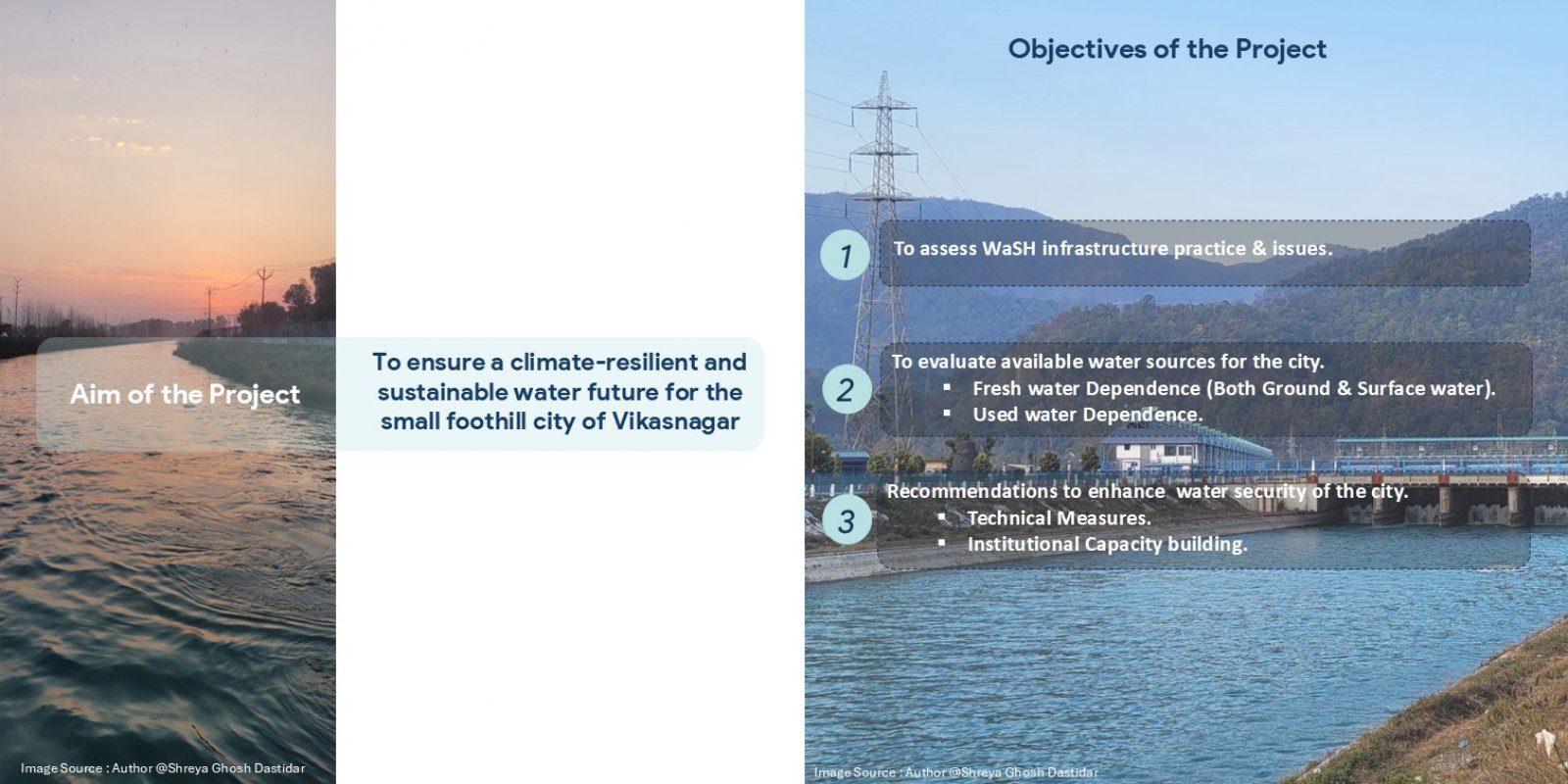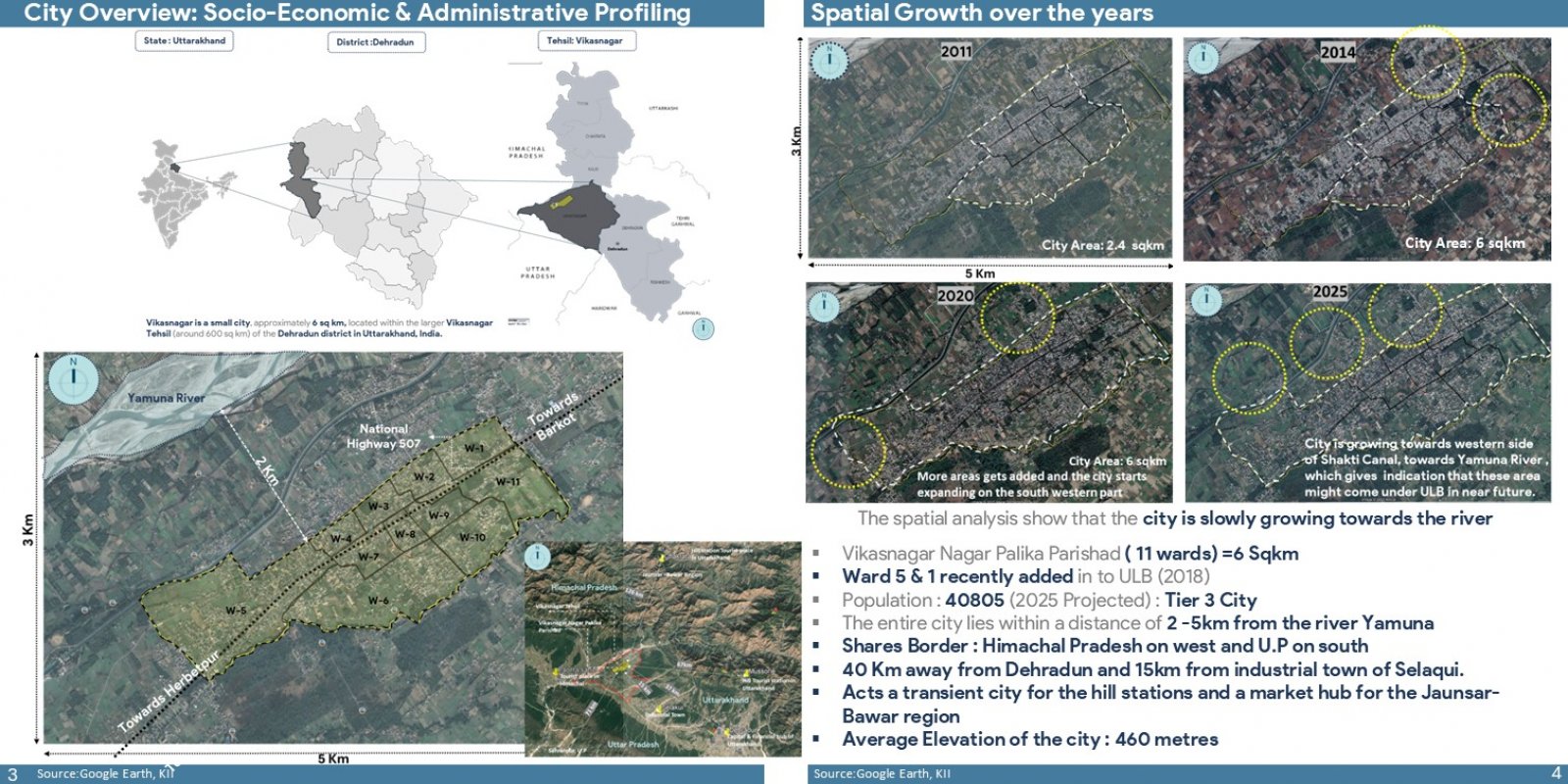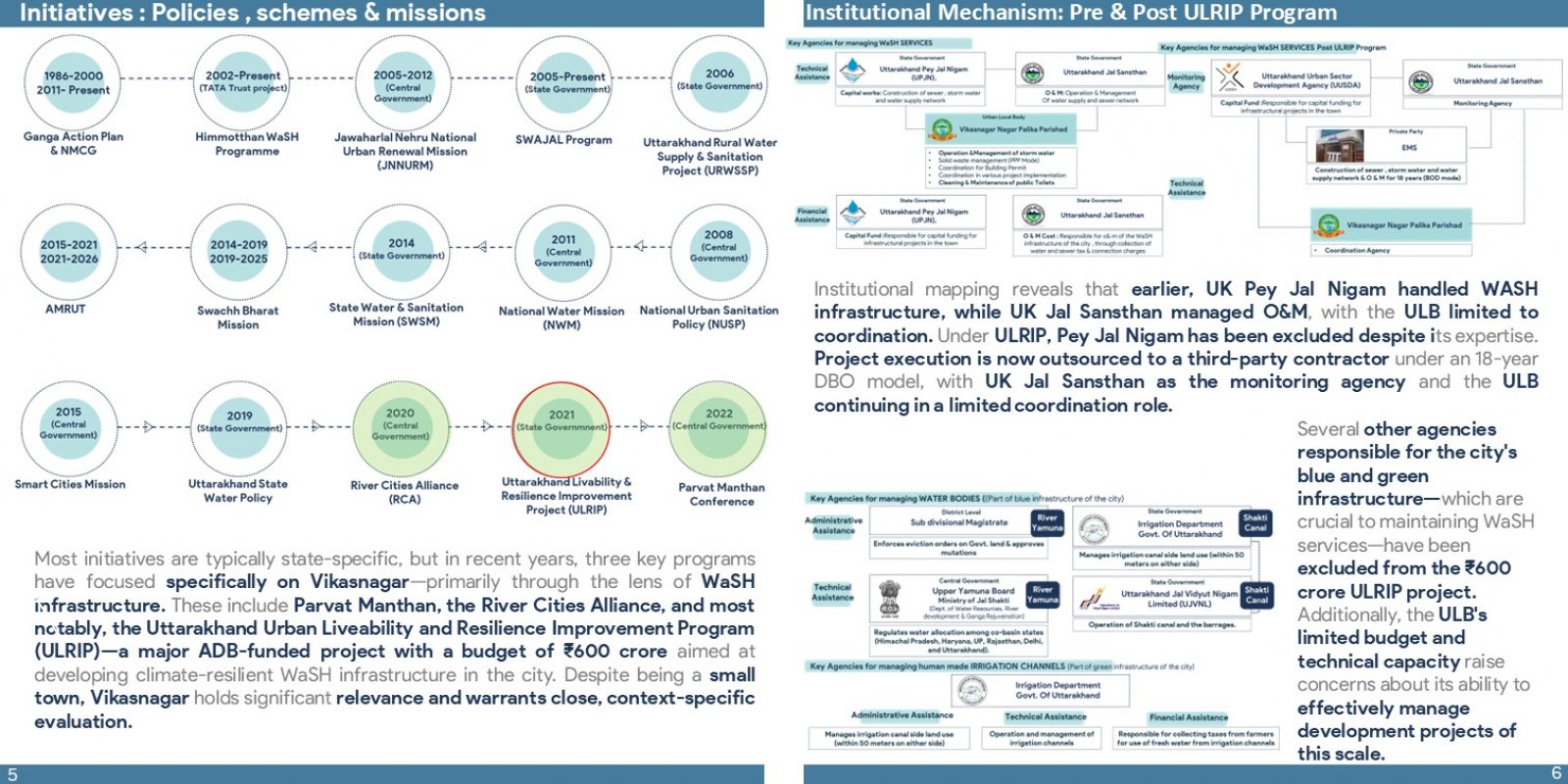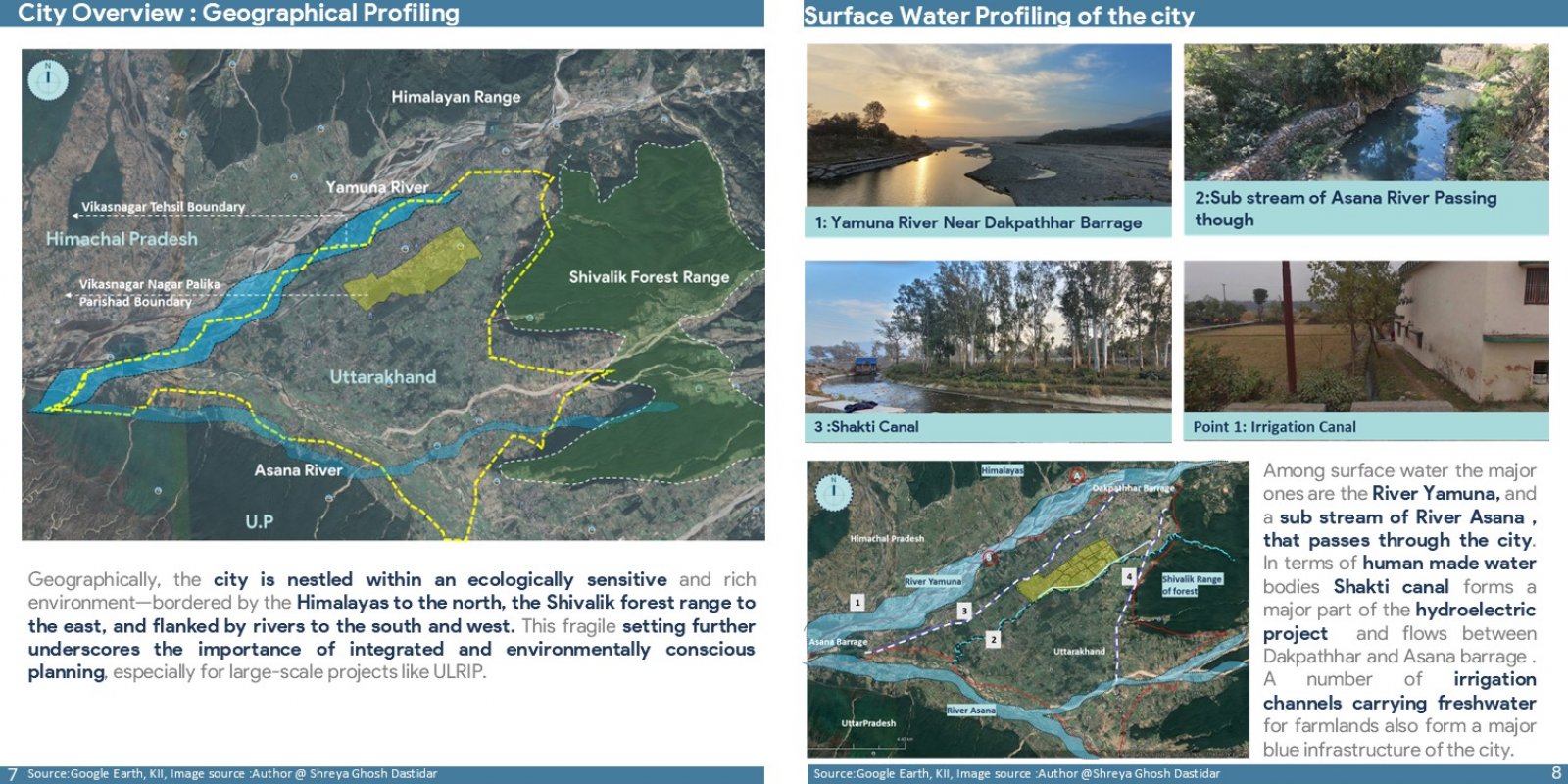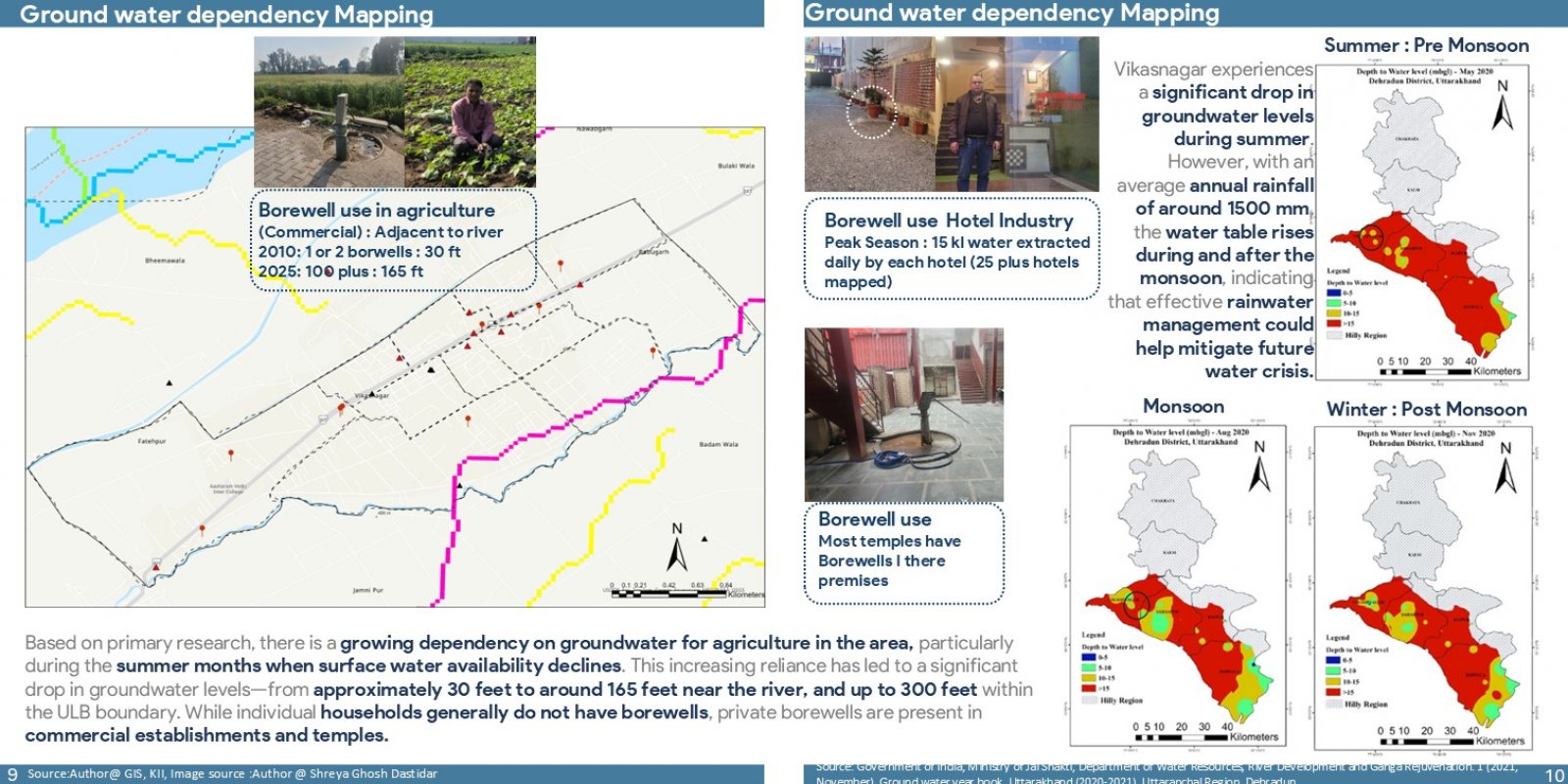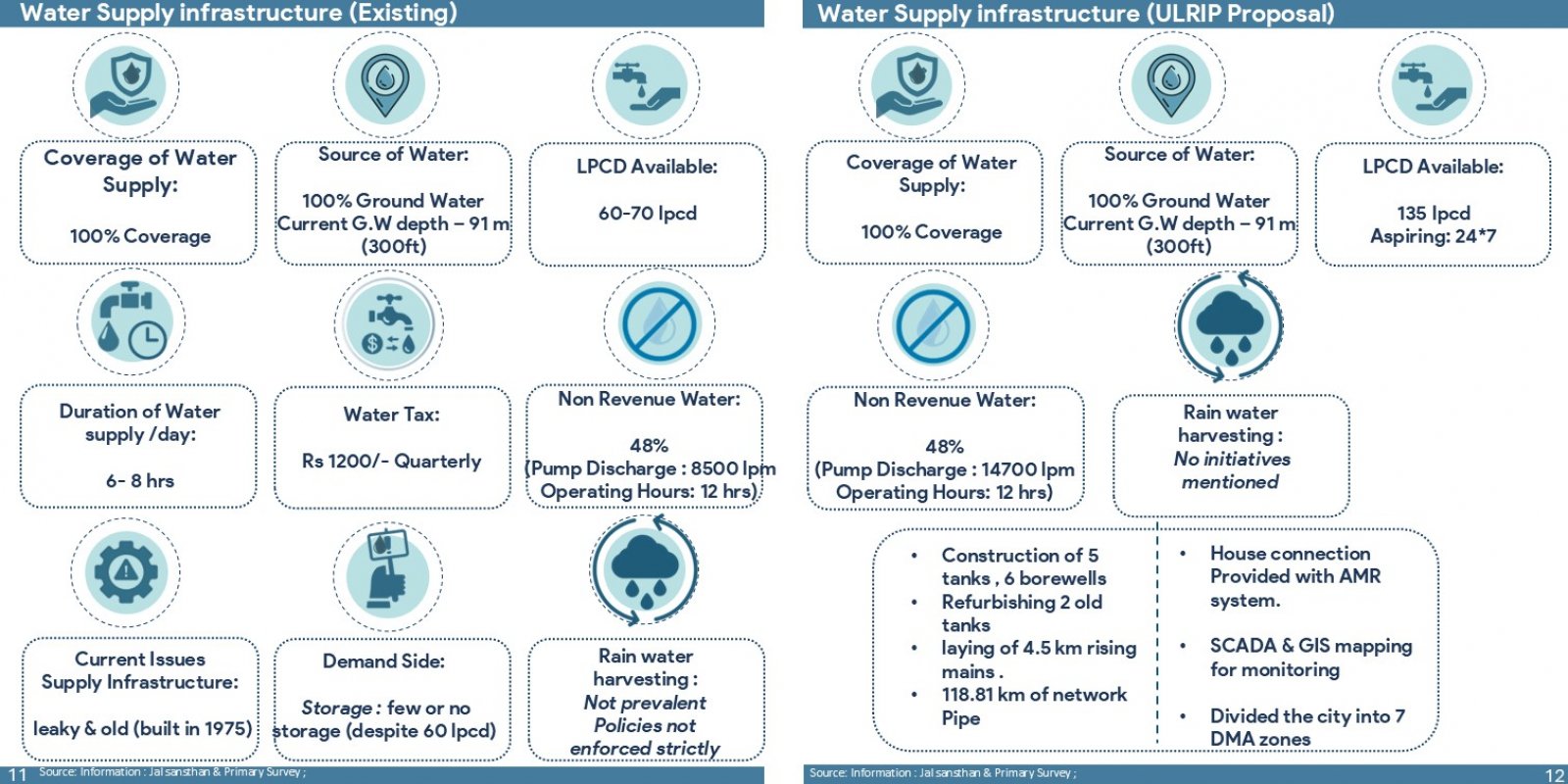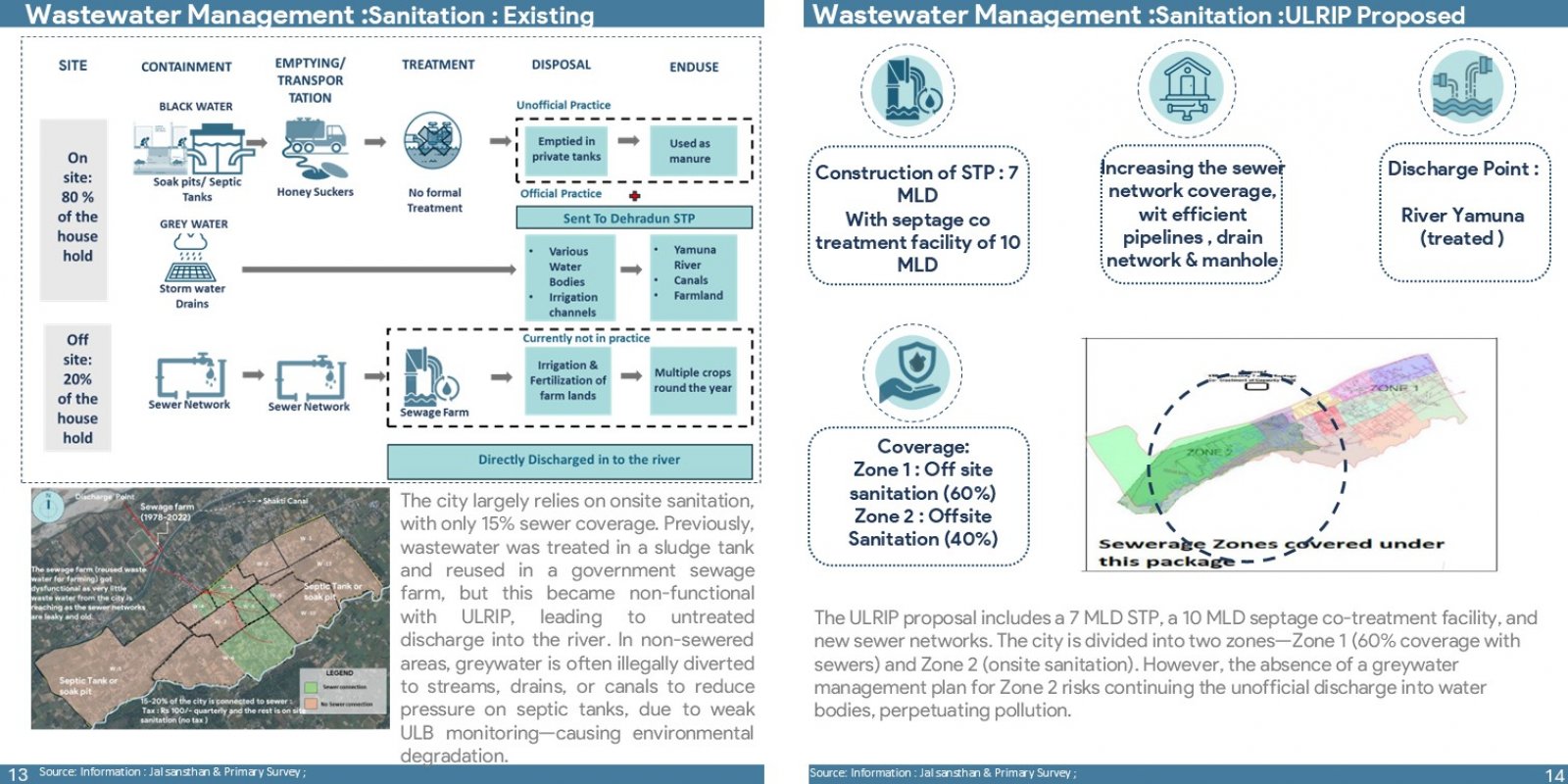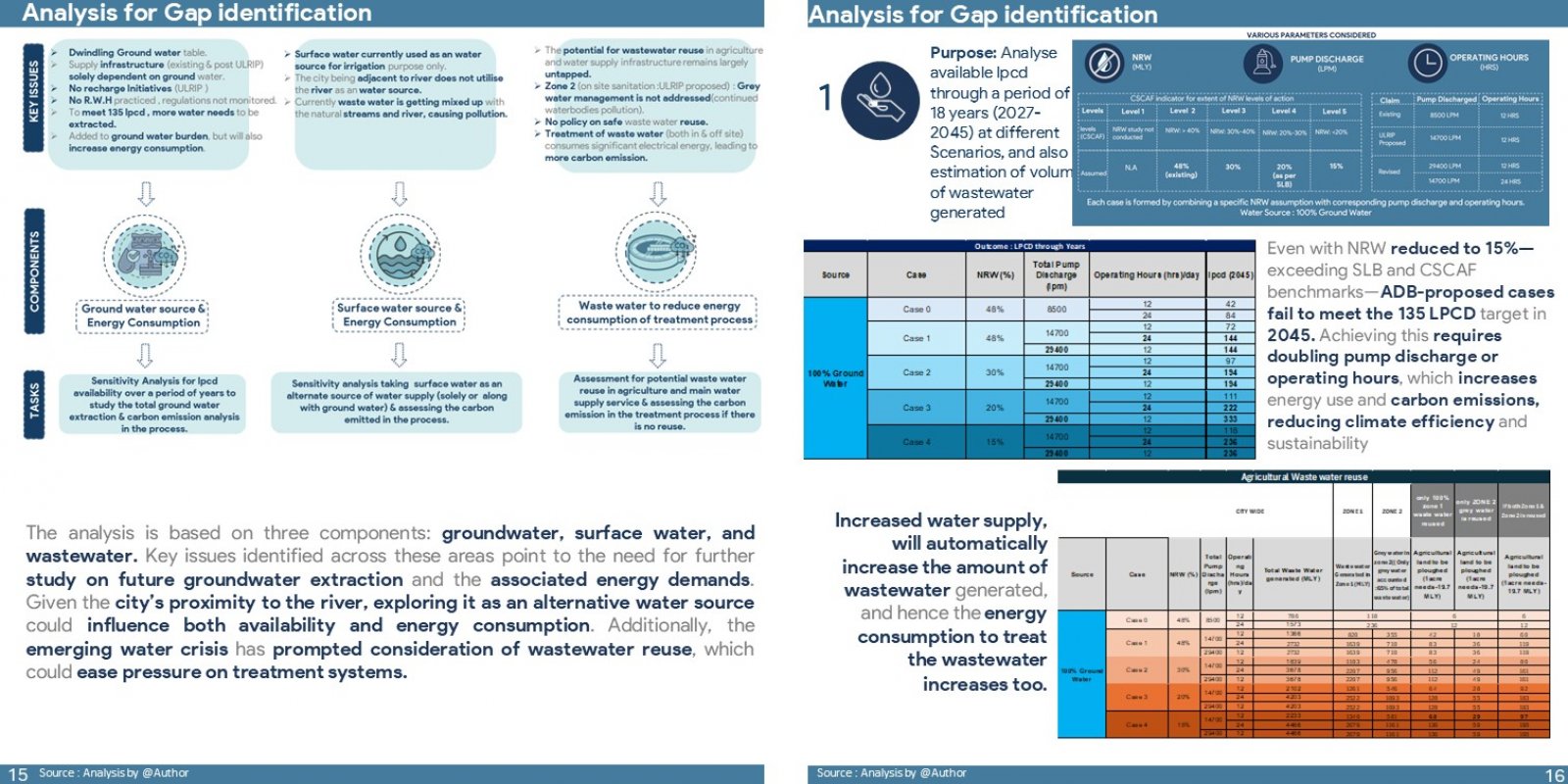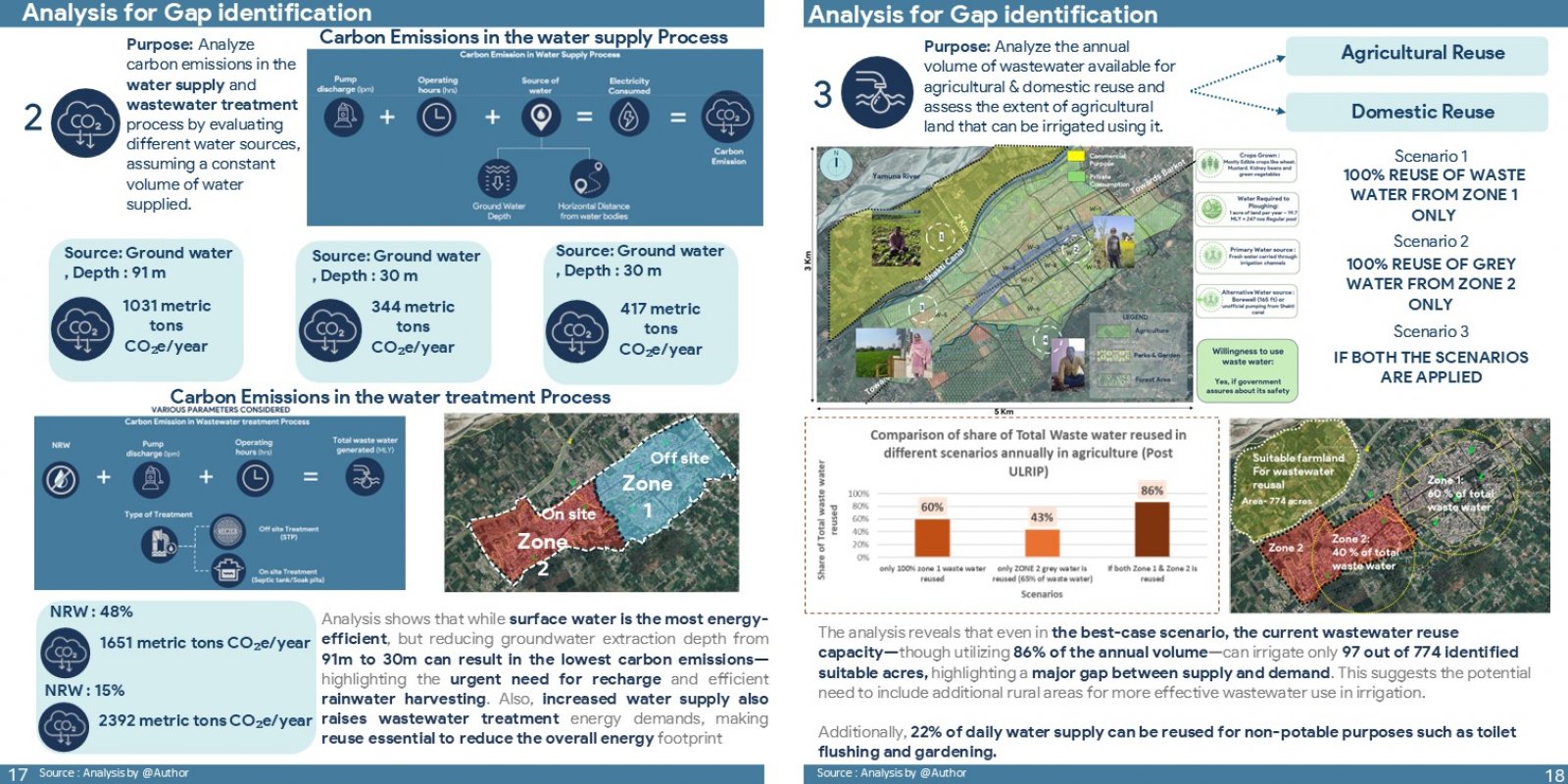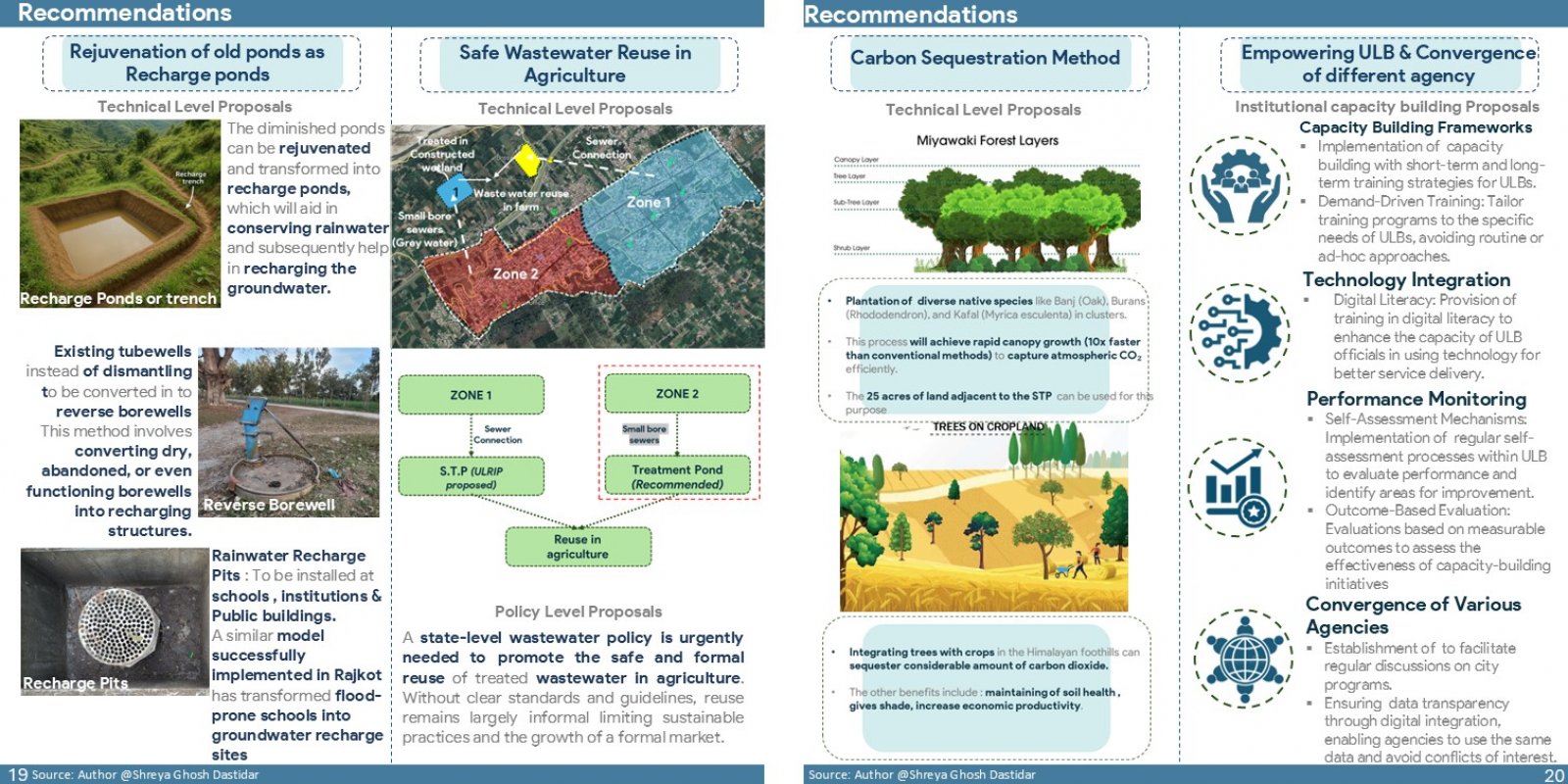Your browser is out-of-date!
For a richer surfing experience on our website, please update your browser. Update my browser now!
For a richer surfing experience on our website, please update your browser. Update my browser now!
This study explores the delivery of climate-resilient Water, Sanitation, and Hygiene (WaSH) services in Vikasnagar, a small foothill town in Uttarakhand. Positioned between the plains and the hills, such towns face unique challenges—limited infrastructure, overlooked planning, and weak institutional capacity—amid rapid urbanization and environmental pressures. Key vulnerabilities include dependence on depleting groundwater table, aging water infrastructure, poor wastewater systems, and increasing climate risks like erratic rainfall and floods. Using sensitivity assessments (2027–2045), the study projects trends in water availability and resource reuse potential. It also explores the emissions related to the water supply & treatment mechanism, with a lens to make it ecologically sustainable, in the long run.It recommends nature-based groundwater recharge, safe wastewater reuse in agriculture, carbon sequestration, and institutional strengthening. The study calls for integrated, locally tailored, and climate-adaptive strategies to build sustainable and resilient WaSH systems in foothill towns.
